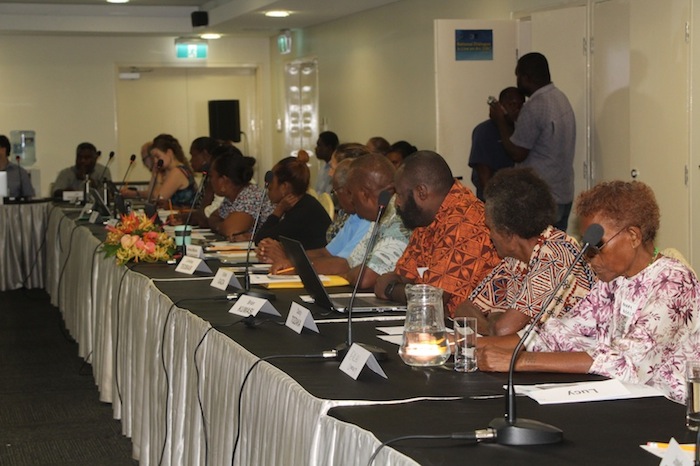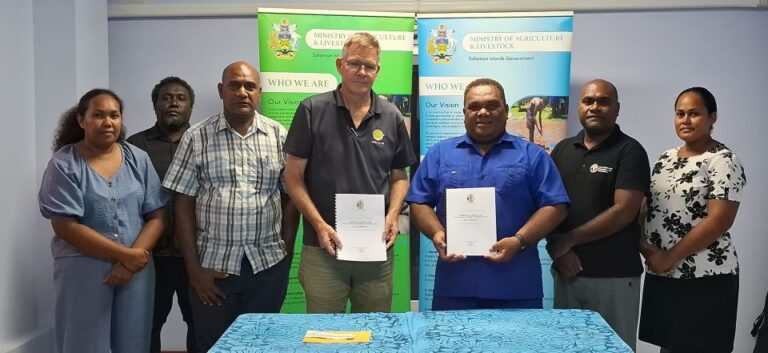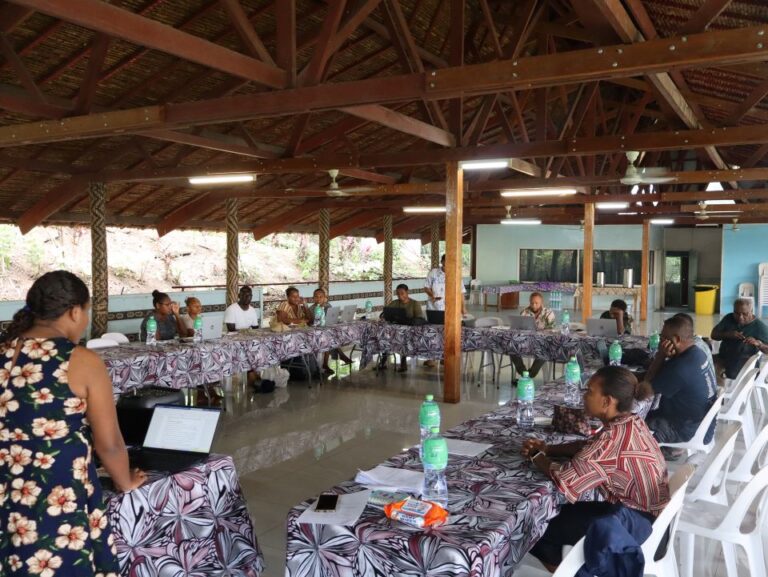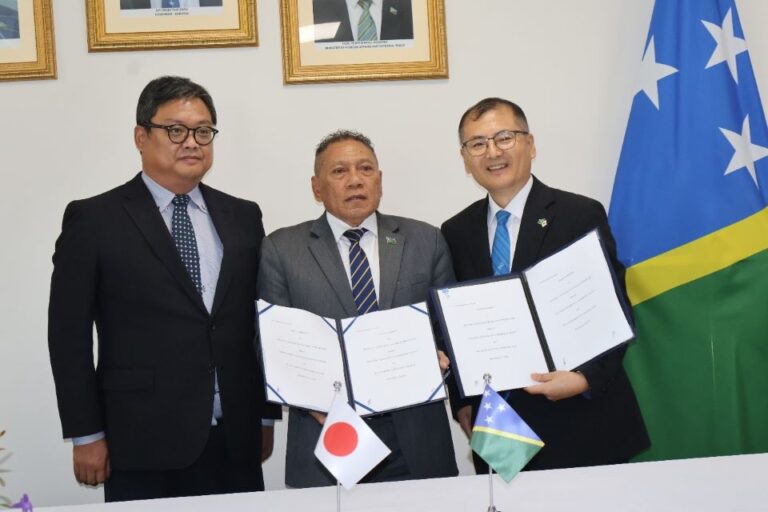BY AGNES MENANOPO
PERMANENT Secretary of Ministry of Environment (MECCDM), Dr. Melchior Mataki has strongly urged all citizens to tackle and address the underlining issues of marine litter in the Solomon Islands.
Dr. Mataki made the urgent call during a 2-days workshop funded by the UK government’s Departments for the Environment, Fisheries, and Rural Affairs (Defra) with the support of the Commonwealth Litter Program (CLiP).
It was held on 31 January – Friday 1 at the Heritage Park Hotel in Honiara.
The objective of the workshop is to allow workshop participants to discuss opportunities on how to tackle marine litter issues in the country. It is an interactive roundtable workshop that focuses on supporting the development of potential national marine litter approaches for the Solomon Islands.
He said the overall waste management here [in the Solomon Islands] really needs a lot of improvements and so it needs everybody to deal with it.
“It’s not just the government, not just the provincial government or local authorities but everybody, NGOs and especially individuals.

The Permanent Secretary said the fact that everybody produces wastes and if we all can do whatever that we can, even in our little space, I think we can all contribute to curbing the issue waste influent in the environment.
“I think what is important is that everybody has to realize that they have a role to play in this waste management issue or role to push and improve waste management, and by waste management I’m referring to Solid waste management.
“So that’s why I’m saying that we should really take action in the individual/household level in order to address this whole waste issue, because everybody produces waste and the general thinking is that as soon as it is produced, it becomes somebody else’s responsibility to deal with it.
“This is really not an upfront issue by a lot of people and so that’s the reason why there’s lot of difficulties that go with it as well, but people shouldn’t really despair as well because a good number of options that can be done at the household level lies with families, lies with individuals to deal with, and of course there are also other streams of wastes that are quite difficult to be dealt with at the individual level,” he added.
Meanwhile, the workshop is a catalyst to assist the Ministry of Environment’s newly established – National Waste Management Strategy.
Mataki said the Ministry of Environment is reviewing the environment act to give a bit more clarity on waste management and also other chemical managements as well-so that it gives more legal force to action that can be taken to address some of these very difficult streams.
“On that note, I’d like to say that most of the difficult substances/wastes that we have are originated from goods that we import into the country and we do not really have ‘end of life’ plans for these and so they eventually end up in the natural environment.
“A lot of things that can be done are common sense things that should really be done by individuals, and then our authorities can also come in and do their part.
“This is an area that cannot be just left to authorities; the national and provincial governments, Honiara City Council (HCC) or other NGOs but we (citizens) really have to assist them to address this issue, because if we do that, we are not only protecting or maintaining the quality of the environment but we are also helping ourselves as well.”
Mataki emphasized the real need to look into the matter and to think about how we can solve this issue for the benefit of ourselves.
“We need to reduce the flow of wastes into the natural environment; not just into the marine environment but also into our waterways-rivers and into the vacant lands as well.
“We need to do this; not just for the sake of the environment but we are doing it for ourselves. I think if we personalize it, then we are probably in the right mindset to address this whole issue of waste management and marine littering,” Mataki said.
CLiP will work with partners across the Commonwealth to share expertise and find solutions to the environmental and socio-economic problems caused by litter in the marine environment.




